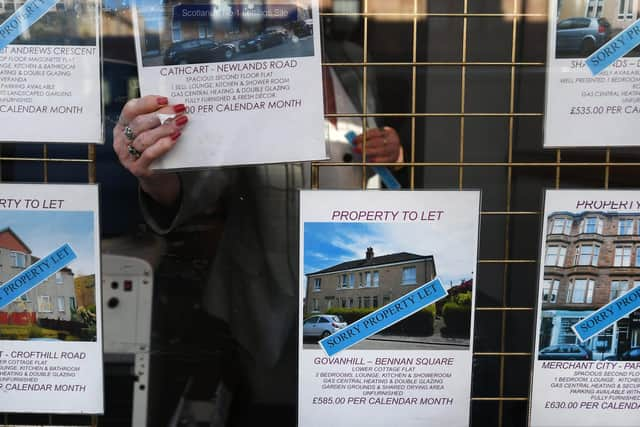Rowntree housing proposal is not to my taste - David Alexander


Although still alive as a trading name, Rowntree’s the manufacturer long passed into the ownership of Nestle. However a connection still exists in the form of the Joseph Rowntree Foundation, named after the founder or the original company who as well as making tons of lucre was also a prominent Victorian philanthropist.
Today, the Foundation, and its associated Housing Trust, keeps alive the social conscience of Joseph Rowntree by “working to solve UK poverty”. Inevitably this produces various proposals with a left-liberal bias and its latest is no exception.
Advertisement
Hide AdAdvertisement
Hide AdThe Foundation is perfectly correct in saying that landlords are “reassessing the profitability of private renting in the light of upcoming reforms” given that returns have become more marginal, largely a result of changes in taxation.
But rather than view this as a problem to be tackled, the Foundation sees it as an opportunity for government to reduce private renting “by rebalancing the position of first-time buyers and landlords in the mortgage market and discouraging property speculation”. In basic terms this means direct government “help” for people to buy the homes they currently rent.
Who was it who said “The road to hell is paved with good intentions”?
Frankly, the proposal makes no sense at all. Why would government subsidise renters to purchase the property they live in? If you did this, then everyone who wasn’t a renter should also be supported to buy their home. You can’t subsidise one part of the market and not the rest.
Aside from being hugely inflationary it also fails to understand that increasing numbers of people are happy with private renting. It is estimated that around 40 per cent of private tenants are from outside the UK, who are here to work for a few years before returning to their home countries. The private rented sector provides suitable accommodation for them while they are here. These people cannot access social housing and they have no desire to buy a property so removing the option of private renting from this group would actually be counter-productive at a time when there are more job vacancies than applicants and staff shortages are causing a major headache for many employers.


Expansion rather than political intervention is what the housing market needs. Build more social and private housing, create a more equitable balance between supply and demand and buying and renting will inevitably become more affordable.
What the Foundation seems not to – or chooses not to – recognise is that a tenant is already at liberty to buy a property from a landlord without the need for government intervention; it just requires both sides to be willing. Many landlords will, of course, want to sell their properties publicly as this is perceived to achieve the best “market” price. However some may also be willing to sell “under the radar” to their sitting tenants in certain circumstances – for example, if needing quick access to liquid funds or wishing to conclude a sale by a certain date on the calendar to take advantage of tax laws.
Shortly before his resignation, Boris Johnson touted the idea of mortgages being passed on from parents to adult children. Many landlords who sell up still have outstanding mortgages on their properties so why not relax the lending rules and permit the balance of these loans to be passed on to a tenant keen to become the owner-occupier, assuming he or she ticked all the right boxes regarding income, job security and previous rental payments? Such a scenario might also eliminate – or at least reduce –the need for a deposit, which is one of the biggest issues facing first-time buyers today.
Advertisement
Hide AdAdvertisement
Hide AdFinally, I have no wish to be overly critical of the Joseph Rowntree Foundation as I am aware of the role it plays in highlighting social injustice in this country. On this issue, however, the inheritors of the founder of fruit gums have bitten off more than they can chew.
David Alexander is chief executive officer of DJ Alexander
Comments
Want to join the conversation? Please or to comment on this article.
